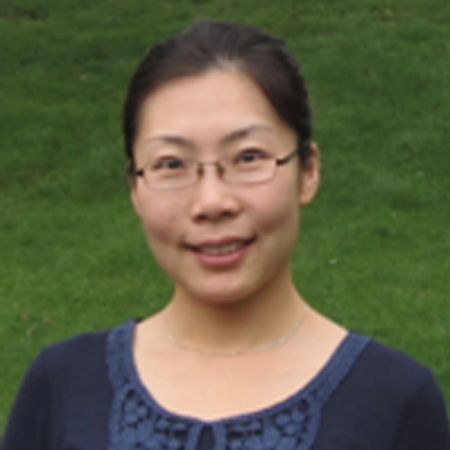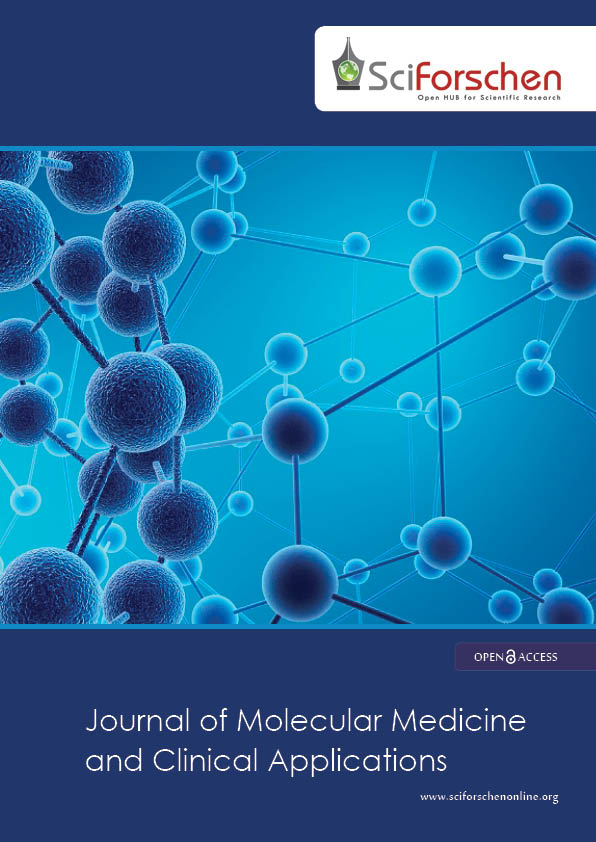
Assistant Professor
Fels Institute for Cancer Research and Molecular Biology
Temple University
USA
Education
- BSc, Biological Technology, China Pharmaceutical University, China, 2003
- PhD, Cell Biology, Chinese Academy of Sciences, China, 2009
- Postdoctoral Fellowship, The University of Michigan, Ann Arbor, MI, 2009-2013
- Research Investigator, The University of Michigan, Ann Arbor, MI, 2013-2014
Biography
I am currently Assistant Professor at Fels Institute of Cancer Research and Molecular Biology, Temple University. My research activities mainly concentrate on transplant immunology, bone marrow failure disorders and epigenetic regulation of immune responses.
Research Interest
T-cell immune response is important for protecting the host from infections and tumors, but it also causes inflammatory disorders, such as autoimmune diseases and rejection of allogeneic grafts. Existing methods lack efficacy to control T cell-mediated disorders. My research involves investigating the cellular and molecular mechanisms of T cell-mediated alloimmunity and anti-tumor immunity. One emphasis is on defining the role of epigenetic regulator Ezh2 (a histone methyltransferase and the key component of polycomb repressive complex 2) in T cell activation, proliferation, differentiation and responses. The goal of the research is to develop Ezh2-based approach to improve the efficacy of T cell immunotherapy.
Professional Activities:
| Sep 2008-Sep 2010 | Research assistant professor | Institute of Health Sciences, Chinese Academy of Sciences, China |
| Apr 2013-present | Research Investigator | Internal Medicine, University of Michigan |
Educational Activities
| 2004-2005 | Teaching, Cell Biology and Molecule Biology, | Chinese Academy of Science, China |
| 2011-present | Mentorship in Zhang Laboratory, Lab Techniques | University of Michigan, MI USA |
| Sep 2013 | Lecture in Leukemia conference Residents and fellows | Division of Hematology/Oncology, University of Michigan, MI, USA |
Professional Organizations
- American Association of Immunologist 2010-Present
- American Society of Hematology 2011-Present
Publications
- Ling Qiu, Shan He, Rui Huang, Yanyun Zhang. A new method to analyze lymphocyte proliferation by fluorescence dye CFSE staining. Chinese Journal of Hemorheology. 2005.
- Ling Qiu, Shan He, Qi Cao, Yanyun Zhang, Rui Huang. Establishment the mouse model of CD8+ T cell-mediated acute graft-versus-host disease. Laboratory animal and comparative medicine. 2006.
- Shan He, Qi Cao, Hiroyuki Yoneyama, Hailiang Ge, Yi Zhang, and Yanyun Zhang. MIP-3a and MIP-1a Rapidly Mobilize Dendritic Cell Precursors into the Peripheral Blood. Journal of Leukocyte Biology 2008; 84(6):1549-56
- Shan He, Qi Cao, Yuhua Qiu, Jianqing Mi, Jingwu Zhang, Kouji Matsushima, Min Jin, Hailiang Ge, Stephen Emerson, Yi Zhang and Yanyun Zhang. A New Approach of Blocking Alloreactive T Cell-mediated GVHD by in vivo Administration of Anti-CXCR3 Neutralizing Antibody. The Journal of Immunology 2008; 181(11):7581-92
- Qi Cao, Yanliang Jin, Min Jin, Shan He, Qiaoli Gu, Songbing He, Yuhua Qiu, Hailiang Ge, Hiroyuki Yoneyama, Yanyun Zhang. Therapeutic effect of MIP-1α-recruited dendritic cells on preestablished solid and metastatic tumors. Cancer Letter 2010; 295(1):17-26.
- Shan He, Koji Kato, Jiu Jiang, Daniel R. Wahl, Shin Mineishi, Erin M. Fisher, Donna M. Murasko,Gary D. Glick, Yi Zhang. Characterization of the Metabolic Phenotype of Rapamycin-Treated CD8+ T Cells with Augmented Ability to Generate Long-Lasting Memory Cells. PLoS One 2011. 6(5):e20107
- Yi Zhang, Ashley R. Sandy, Jina Wang, Vedran Radojcic, Gloria T. Shan, Ivy T. Tran, Ann Friedman, Koji Kato, Shan He, Shuaiying Cui, Elizabeth Hexner, Dale M. Frank, Stephen G. Emerson, Warren S. Pear and Ivan Maillard. Notch signaling is a critical regulator of allogeneic CD4+ T-cell responses mediating graft-versus-host disease. Blood 2011; 117(1):299-308
- Kazuhiro Mochizuki, Shan He, and Yi Zhang. Notch and Inflammatory T Cell Response: New Developments and Challenges. Immunotherapy 2011; 3(11):1353-66
- Shan He, Jina Wang, Koji Kato, Fang Xie, Sooryanarayana Varambally, Shin Mineishi, Rork Kuick, Kazuhiro Mochizuki, Yongnian Liu, Evelyn Nieves, Ram Mani, Arul M Chinnaiyan, Victor E. Marquez and Yi Zhang. Inhibition of histone methylation arrests ongoing graft-versus-host diseases in mice by selectively inducing apoptosis of alloreactive effector T cells. Blood 2012; 119(5):1274-82
- Kazuhiro Mochizuki, Fang Xie, Shan He, Qing Tong, Yongnian Liu, Yajun Guo, Koji Kato, Hideo Yagita, Shin Mineishi, and Yi Zhang. Delta-like Ligand 4 Identifies a Previously Uncharacterized Population of Inflammatory Dendritic Cells That Plays Important Roles in Eliciting Allogeneic T-cell Responses in Mice. Journal of Immunology 2013; 190(7):3772-82
- Shan He, Qing Tong, Keith Bishop, Yi Zhang. Histone methyltransferase and histone methylation in inflammatory T-cell responses. Immunotherapy 2013; 5(9):989-1004
- Shan He, Fang Xie, Yongnian Liu, Qing Tong, Kazuhiro Mochizuki, Philip E Lapinski, Ram-Shankar Mani, Pavan Reddy, Izumi Mochizuki, Arul M Chinnaiyan, Shin Mineishi, Philip D King, and Yi Zhang. The histone methyltransferase Ezh2 is a crucial epigenetic regulator of allogeneic T cell responses mediating graft-versus-host disease. Blood 2013, 122 (25):4119-4128
- Qing Tong, Shan He, Fang Xie, Kazuhiro Mochizuki, Yongnian Liu, Izumi Mochizuki, Lijun Meng, Hongxing Sun, Yanyun Zhang, Yajun Guo, Elizabeth Hexner, Yi Zhang. Ezh2 regulates transcriptional and posttranslational expression of T-bet and promotes Th1 cell responses mediating aplastic anemia in mice. The Journal of Immunology 2014,92(11):5012-5022.

